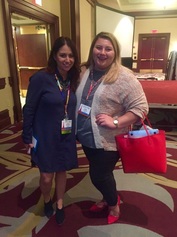
By Danie Minor
While at PRSSA National Conference, I had the opportunity to hear the infamous Intern Queen, Lauren Berger share her insights and tips on how to get the best internship. Beyond sharing her tips and tricks to getting an internship, she also shared how to maintain a great relationship after your internship is finished. While in college, Berger completed a total of 15 internships (this is why she is a Queen!) and only three years after graduating college started her business, Intern Queen. As a freshman, Berger’s mom told her she needed to get an internship, so she marched down to the career services center on campus and told them where she wanted to intern and the career services center to come back when she was a junior or senior. Berger took it upon herself with her only relevant work experience being at Limited Too and Red Lobster and made a cold call to the Zimmerman Agency. The internship coordinator told her to send in her resume and she sent it that night, which is what won over the coordinator and gave her the position. So basically, say yes even when people tell you no, because you never know what could happen when you try. Berger says that when it comes to internships it’s really about “quality over quantity,” so you do not need 15 internships to get a great job after school, but she does recommend having at least two before you graduate. Lauren’s tips to get the internship:
Lauren’s number one tip once you’ve had your internship: Follow up THREE times a year with people from your internship! Once in the fall, once in the spring and once in the summer. Berger says this will help you maintain a relationship with your professional contacts there so your relationship does not get awkward. In the words of the Intern Queen, “internships are magical!” They are so magical because you never know where they will lead your professional career to. For example, when Berger graduated, she called up a past internship and told them she was moving back to L.A. and wanted to work at the Creative Artist Agency, so her former boss placed her on hold, and made a phone call to the agency and got her an interview a for a few days later. Like she said, they are magical! The Intern Queen has so many amazing tips to landing your goal internship and jobs after college, so definitely follow her on social media @Internqueen and watch her videos on Youtube at Youtube.com/internqueen! I loved meeting her and cannot wait to see where her advice leads me. Danie Minor is a senior public relations major at Kent State. Contact her at dminor4@kent.edu.
0 Comments
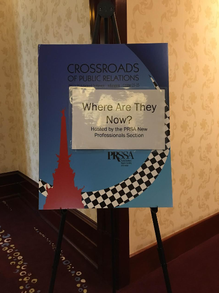 By Emily Glatt Heather Harder, Account Executive, Prosek Partners Brian Price, Digital Marketing Manager, Starwood Retail Partners Nick Lucido, Senior Accountant Supervisor, Krispr Communication Moderator: Jessica Noonan, Group Manager, Weber Shandwick Have you ever wondered where the PR degree can take you? What is it like outside of college in the "big bad world?” At PRSSA National Conference, four professionals sat down and gave all the attendees insight on what it’s like after college and where a PR degree can take you. Also, they gave advice on how to manage in the world and how to step out of the bubble of college. The entire session was about making our own agenda and allowed students to go up and ask questions to the professionals. How do you network to find a job? Brian Price, Digital Marketing Manager for Starwood Retail Partners, suggested to always follow up on your networks and possibly try to network through your network. By getting them to introduce you to other people in the field, you have more networking opportunities. How do you find a job that you love? Heather Harder, an account executive at Prosek Partners, gave advice to always try new experiences and opportunities. She had talked about a personal experience when she had gone to a non-profit agency and how she was not excited about it. However, she learned from that experience that she actually loved non-profit. She also learned that starting small and building up a reputation can go a long way into getting those bigger corporate jobs. Heather stated that you should be inspired and never stop dreaming big. By always being inspired and willing to better yourself, you can make those changes. She said, "Don't be afraid to admit that what you want is not what you have--- make the change." Never be okay with settling and always try and try to be happy with your career. Never feel discouraged if you are not immediately in that place, but rather work hard to get to where you want. How has your experience in PRSSA helped you after graduation? All four professionals had talked about how PRSSA has really helped that move ahead in the world and how it has helped them get internships and networking experience. Nick talked about how you should always take advantage of that membership. Use it as a tool to get the one up in a very competitive world. He says that PRSSA can help you get any job by contacting other PRSSA members or alumni and getting internships through that. How do you go from a small school in Ohio to a big city like New York, LA, Chicago etc.? First the professionals said that big cities mean big agencies and to be ready for competition and rejection. However, they said it was very doable to move to a new city right out of college. The tips they gave to make it better was:
Do you need a master's degree? Nick Lucido had reassured all our fears when he said NO YOU DO NOT NEED A MASTERS DEGREE IN PR. He talks about how employers look more for experience rather than how many years you’ve gone to school. However, he did suggest that if you are financially capable and feel that graduate school is your calling, then go for it. Though, to get a first job, you will not need more than a bachelor's degree. He also went on to say that maybe when you are done with your first job then you can go back, but it is not expected of you. Do you have advice for job interviews and moving into the business world? The pros said that you should always try to talk about the things you learned from an old job and not about what you did. They also suggested to never say anything negative in a job interview. You don't need to tell them about the secrets and the "behind the scenes" of a program that you were a part of. When should I start looking for internships or jobs? Brian Price said to look for jobs right before the summer and, if you are graduating, right before graduation. He meant that you should be doing so a month ahead of time. He says this is the most beneficial because those are hiring right away. If you try to get a job too early, you may not be hired because the company or agency is looking for someone who can work immediately . They also said only to send out three applications to places because you do not want to be overbooked. You really should focus on your one main job that you want; to give all your time and energy to ensure you can get it. The pros also advise to never be scared to apply for a job because of the experience requirements. They quoted the old saying of "It is quality over quantity". However, they did bring up the harsh reality that you will not always get the job and try to not get to discouraged about a job you didn't get. This is because many companies may be asking for a job that requires you to have loads of experience and some are much more strict about this than others. You can still go for it, but be ready for any answer. Their final tip was to always seek out mentors and mentees because someday a mentor will help you in more ways then you know. They can help with your resume or they can go as far as helping you get a job. Also, you should try to have multiple mentors to get multiple pieces of advice and insight. This many insights can only help you. Another thing they encouraged was for you to become a mentor to younger people especially when you have left college and gone to a new job. Teach others the things your mentors taught you and help them. When asked where to find a mentor, they said they could do it through PRSSA and PRSA. In PRSA, they have a mentor program. They also talk about how anyone signed up for that is more than willing to help PRSSA members get to where they want. Do you have any final thoughts or advice?
Emily Glatt is a freshman public relations major at Kent State. Contact her at eglatt@kent.edu. 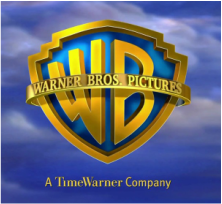 By Brenna Parker For the chronic binge-watchers and moviegoers who dream of working in the entertainment industry in film and television, guess what? You have a shot at making it big too. In the “Conversation With Warner Bros. Television Publicity” session, panelists Jeff Tobler, Lisa Mitchell and Brian Carrillo talked about how television audiences are changing. Consumers are not watching television on their TVs live anymore, instead they DVR, watch online or on their mobile devices. Entertainment companies are now starting to pay attention with how they can reach their customers. These production companies aren’t just launching shows domestically and internationally to global media markets. Warner Bros. currently has 11 publicity field offices around the world and every show is launched globally. Warner Bros. currently has 400 shows on the air and balances how to get viewers to watch the shows and break through the clutter. They work to not only gain media attention for their shows internationally, but also get the actors placed on magazines and booked on television shows. This also includes submitting the plan to get a star on the walk of fame and planning the reception. The panelists also talked about how the press is overwhelmed with what to cover and are running out of space because of the high demand of quality shows currently on air. As the publicist for a show, you need to know the show you are working on and get the message out to the right person at the right time. Carrillo talked about how every day is different working behind the scenes. Every Monday when Supergirl airs, the next morning the communications team pulls clips from media outlets from the night before and then pitches the next episode to the press. During this panel they mentioned one of their tactics is to release breaking news to publications such as Entertainment Weekly and People. One of the media events they did was from this past April, when actress Allison Janney made a surprise appearance at a White House press briefing. Janney discussed the importance of addressing the growing problem of opiate addiction across the country. Janney previously starred as the White House Press Secretary on the television show The West Wing. Warner Bros. used the event to discuss opiate addiction, but also promote their show Mom, which follows a single mother who, after dealing with her battle with alcoholism and drug abuse, decides to restart her life in California, working as a waitress and attending Alcoholics Anonymous meetings. Her mother, played by Janney, is also a recovering drug and alcohol addict. The show adds themes of real-life issues such as alcoholism, teen pregnancy, cancer, homelessness, gambling addiction, domestic violence, death, drug addiction, relapse and overdose. ComicCon expanded to across the country and is now in 21 cities. The publicists plan the logistics of the events, which actors and producers attend, plan their food, when they get there etc. They also coordinate the new initiative for ComicCon, involved actors created a short video to fans to tell them they were coming to the event.
Mitchell talked about how part of the job entails working with the actor’s personal publicists to get them positive media coverage. Often times this involves communicating to check the actor's schedule to see if they will be working on another project. Tips · Apply for as many internship opportunities in the entertainment industry as you can in New York and Los Angeles. · Build relationships with as many people who work in that industry as you can. This industry is incredibly close knit and small. · Apply to work for local theatre troupes, festivals or even major conferences in your area like ComicCon. · If you are a publicist, you should always have a pen. · Gain skills in Adobe Premiere Pro so you know how to put together an electronic press clip. Brenna Parker is a senior public relations major and is PRSSA Kent's vice president of professional relations. Contact her at bparke12@kent.edu. 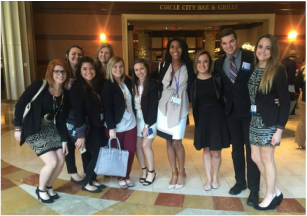 By Daniel Henderson For anyone, from either side of the aisle that is interested in politics and anyone who wants a part in shaping the future political messages of candidates for office, this was the session to be at. Anne Hathaway, the CEO and Founder of Hathaway strategies, a grassroots public affairs campaign, along with Jane Jankowski, also from Hathaway Strategies, presented on the keys to success for political campaigning and rules to live by if working in politics. Both have impressive and lengthy resumes, that frankly are worthy of their own blog post, and can be seen on the PRSSA National Conference website. The session started with the audience giving their views on recent quotes from the presidential campaign and whether the lines are good or bad for the candidate. They then moved on to their views on how political PR has been turned on its head. The current election cycle, the news cycle shrinking every day, social media, use of surrogates and grassroots support have changed how political PR pros do their job. It expands messaging opportunities but makes controlling the message in the media harder than it once was. Their “Keys to Success,” included: Know why you’re running, tell the truth, be accurate, pay attention to timing, know when to be disciplined, know when you can have a little fun and know when to say nothing. Some endearing words from the speakers to remember: “Don’t bring me a problem unless you’re also coming with a solution” -Jane Jankowski “[Surrogates] are a very smart, very calculated way to get the message out. It’s a choir instead of a soloist.” –Anne Hathaway “The words ‘no comment’ are still saying something” –Anne Hathaway Daniel Henderson is a senior public relations major and is PRSSA Kent's treasurer. Contact him at dhende21@kent.edu. 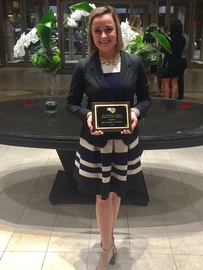 Gabrielle Woodard Hearing from the founder of Nebo, Brian Easter, about the importance of internal communications was thought provoking. Nebo is an agency based out of Atlanta, Georgia and focuses on the good things their company can do along with the importance of employees feeling important. Easter says that Nebo is a “human-centered” agency and focuses on the stories within their clients. The session focused heavily on how agencies can transform marketing campaigns into problem-solving campaigns and how to reach the true needs of the audience. Nebo is an amazing agency. They put together a campaign to raise money for a nearby no-kill animal shelter. They even threw a party for the dogs where they went to play with the dogs and brought them toys. Easter says “we spend most of our waking life at work,” why shouldn’t we enjoy it? Easter’s presentation included examples about how the best campaigns only briefly mention the product, and present them in an unexpected way. One example was a Coke ad that used a coke machine to connect people in Pakistan and India. This ad supported Easter’s reoccurring theme that when it all comes down to it, we are all people. Easter even spoke about a time that his agency fired a client because they were draining his employees, making them no longer excited to come to work. “Everything is easier if you care about your employees,” said Easter while he encouraged the students in the room to ask companies about their culture while interviewing. Gabrielle Woodard is a senior public relations major and is PRSSA Kent's immediate past president. Contact her at gwoodard@kent.edu. |
Archives
February 2024
Categories
All
|
 RSS Feed
RSS Feed
